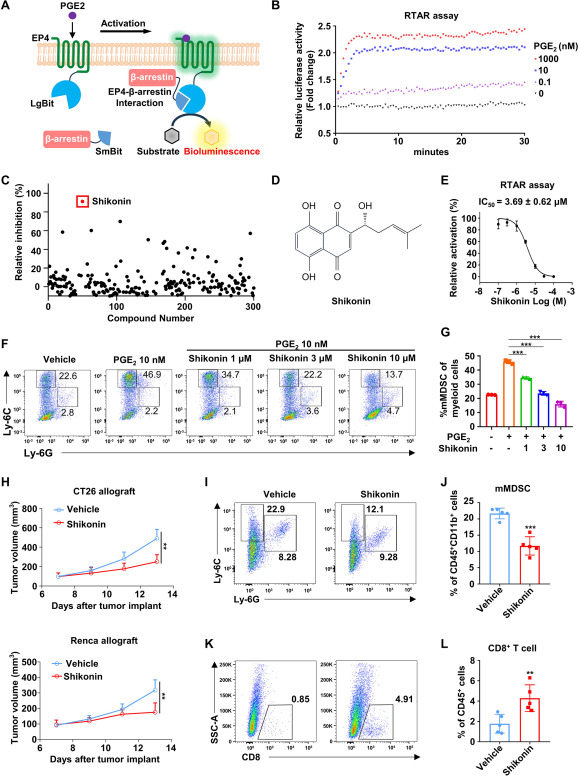
Shikonin is a novel antagonist of prostaglandin E2 receptor 4 that targets myeloid-derived suppressor cells


Myeloid-derived suppressor cells (MDSCs) constitute a crucial component of the immunosuppressive tumor microenvironment.1 Prostaglandin E2 receptor 4 (EP4) is involved in regulating immunosuppressive MDSC differentiation and is emerging as a promising target for cancer immunotherapy.2 No EP4 antagonists have been approved for anti-tumor therapy, underscoring the urgent requirement for the discovery of novel EP4 antagonists. G protein and β-arrestin represent two classical downstream pathways for EP4. The inactivity of G protein and β-arrestin serves as a readout to indicate EP4 antagonism, providing a rationale for establishing EP4 drug screening platforms. From a broad perspective on the history of G protein-coupled receptor (GPCR) drug discovery, using a β-arrestin-based drug screening strategy may offer greater advantages over G protein strategies, especially for the GPCRs that have not been proven on which G proteins they bind. Several cellular assays for the detection of GPCR/β-arrestin interaction have been established, including the PRESTO-Tango assay and fluorescent β-arrestin labeling assay. However, these assays are not suitable for the real-time dynamic detection of GPCR-β-arrestin signaling. In this study, we aimed to develop a novel real-time β-arrestin recruitment assay for EP4 receptor and to identify a potent EP4 antagonist that could attenuate the immunosuppressive effects of MDSCs.
